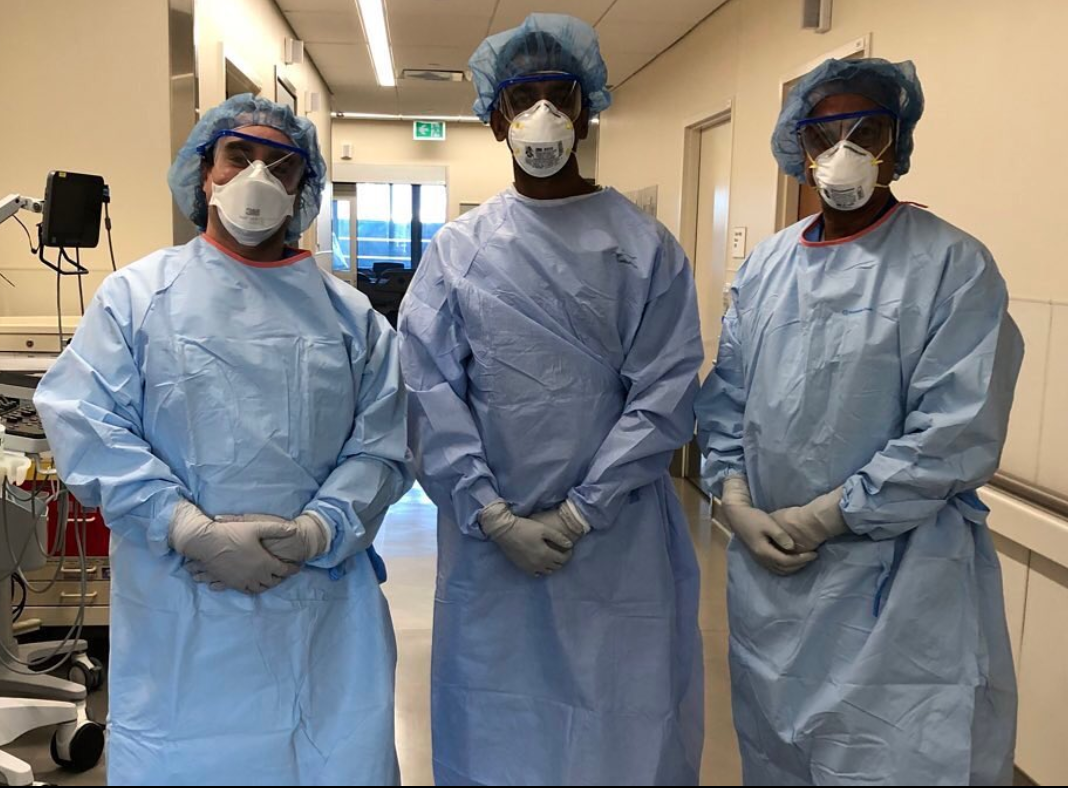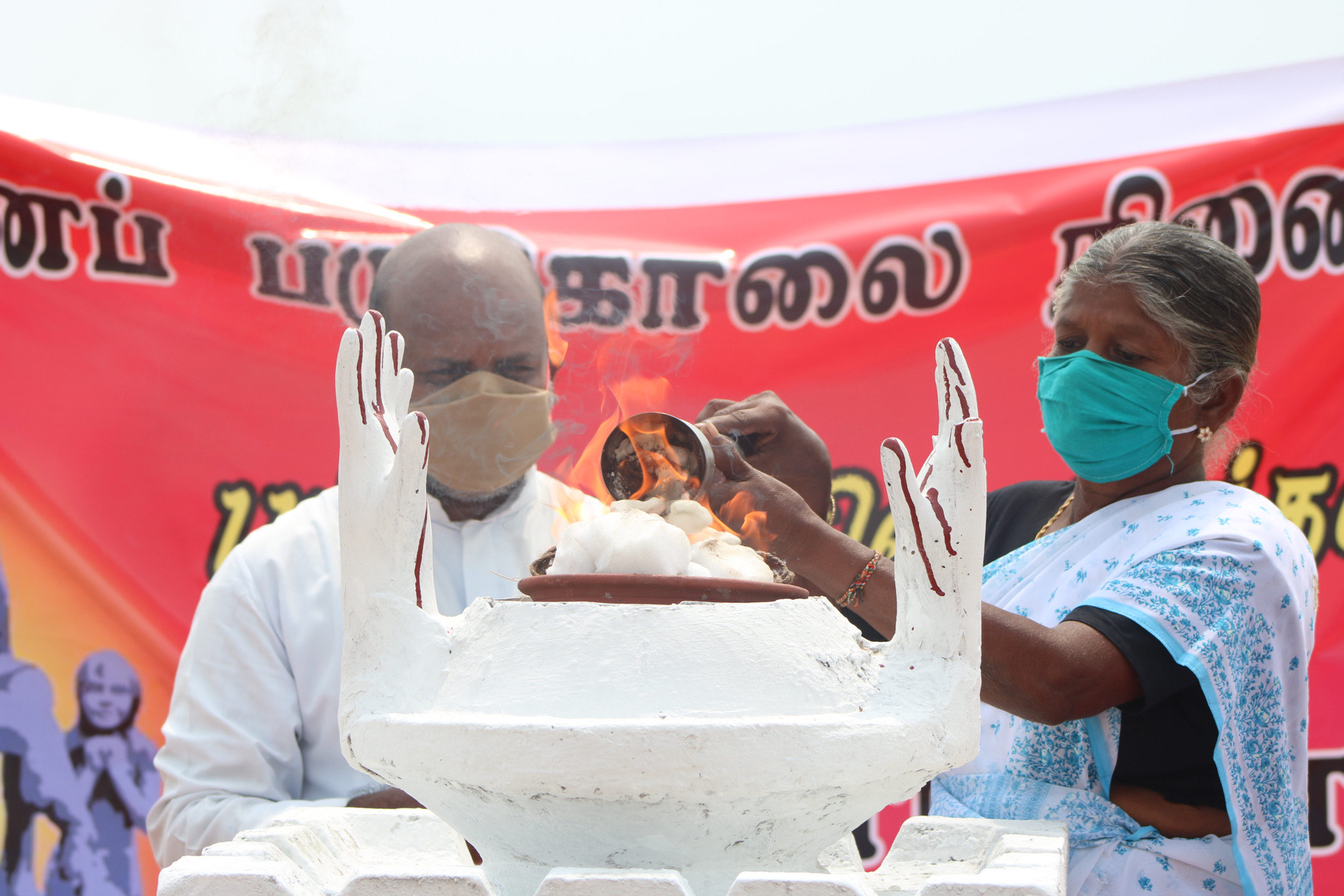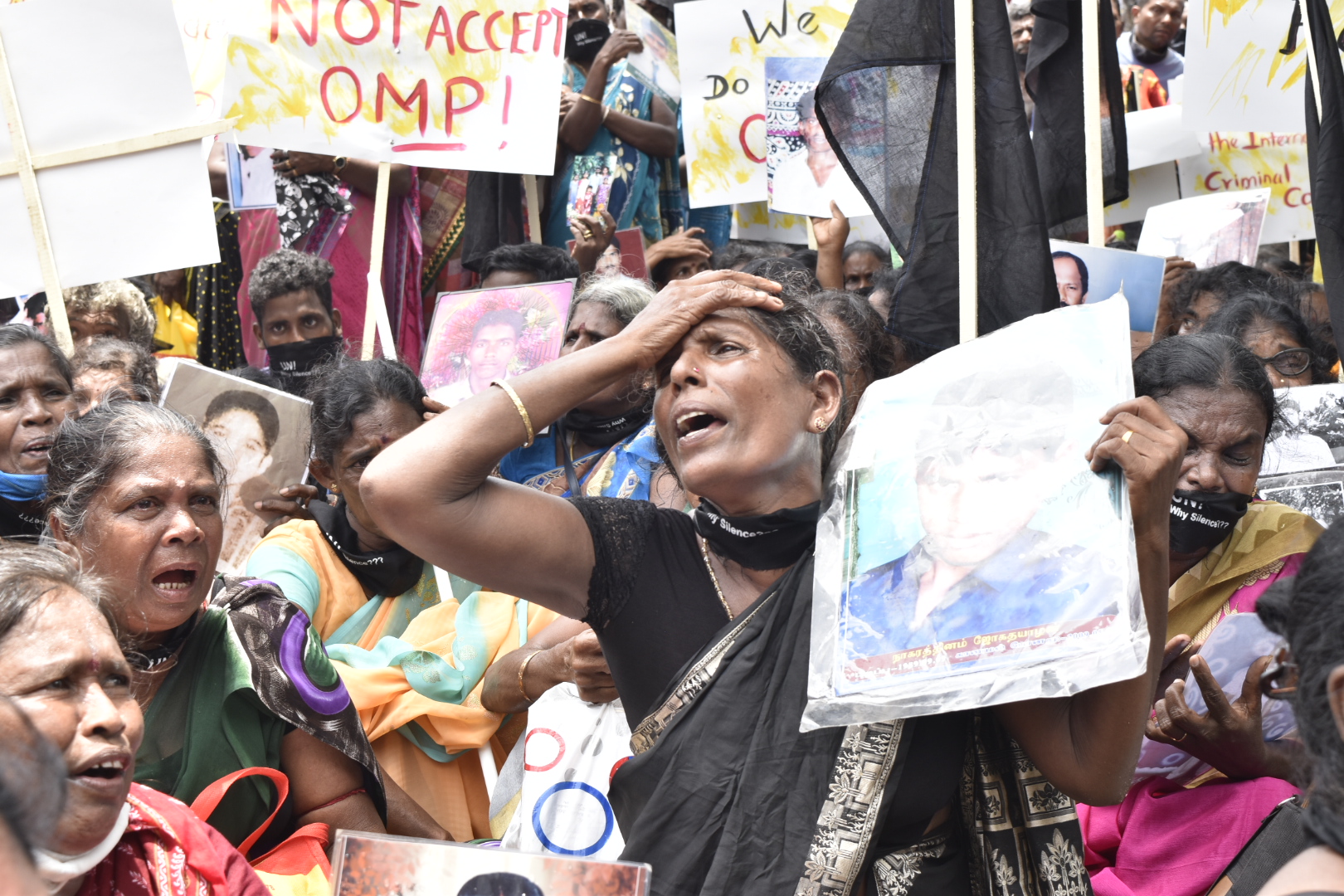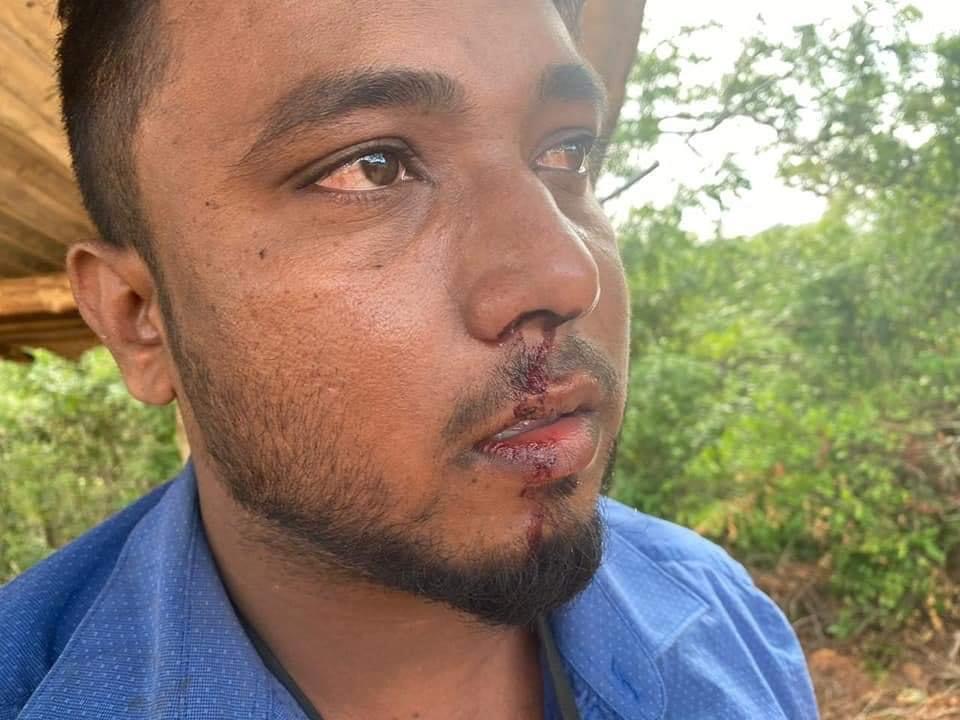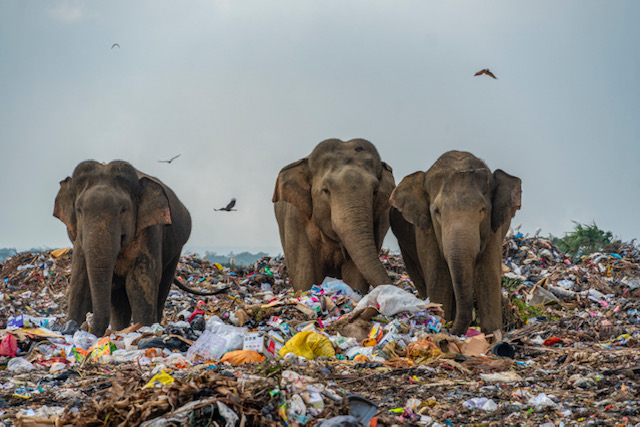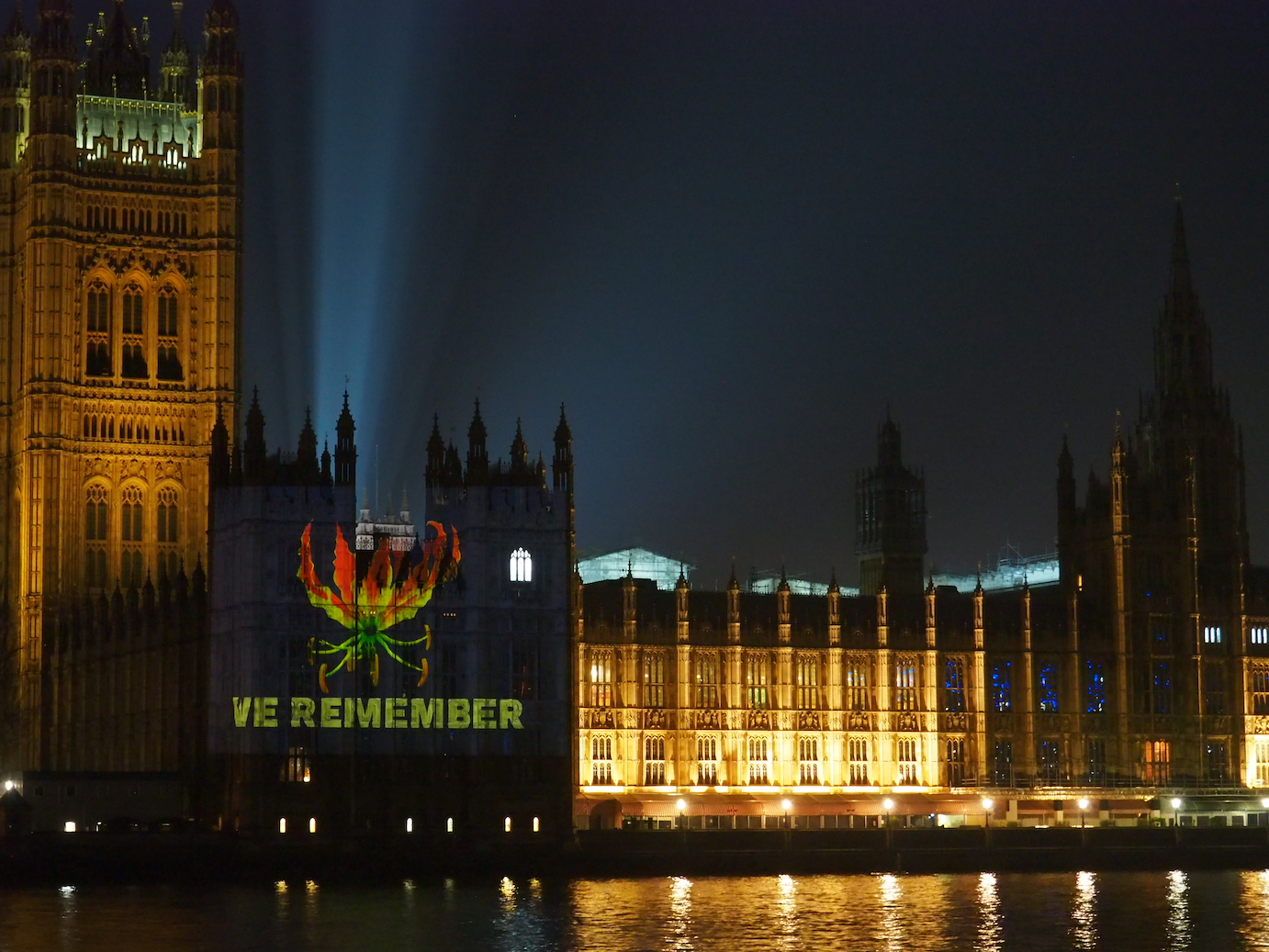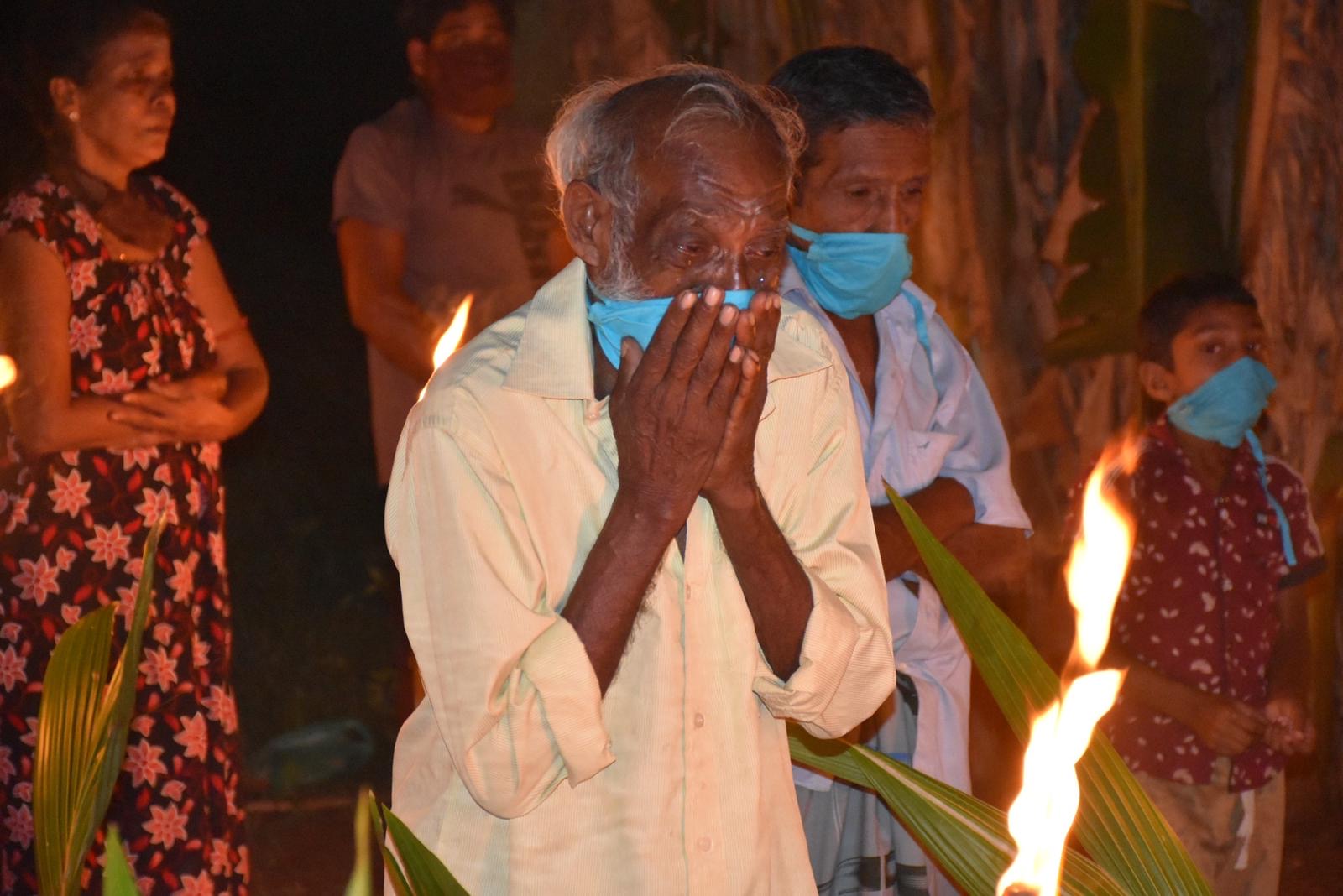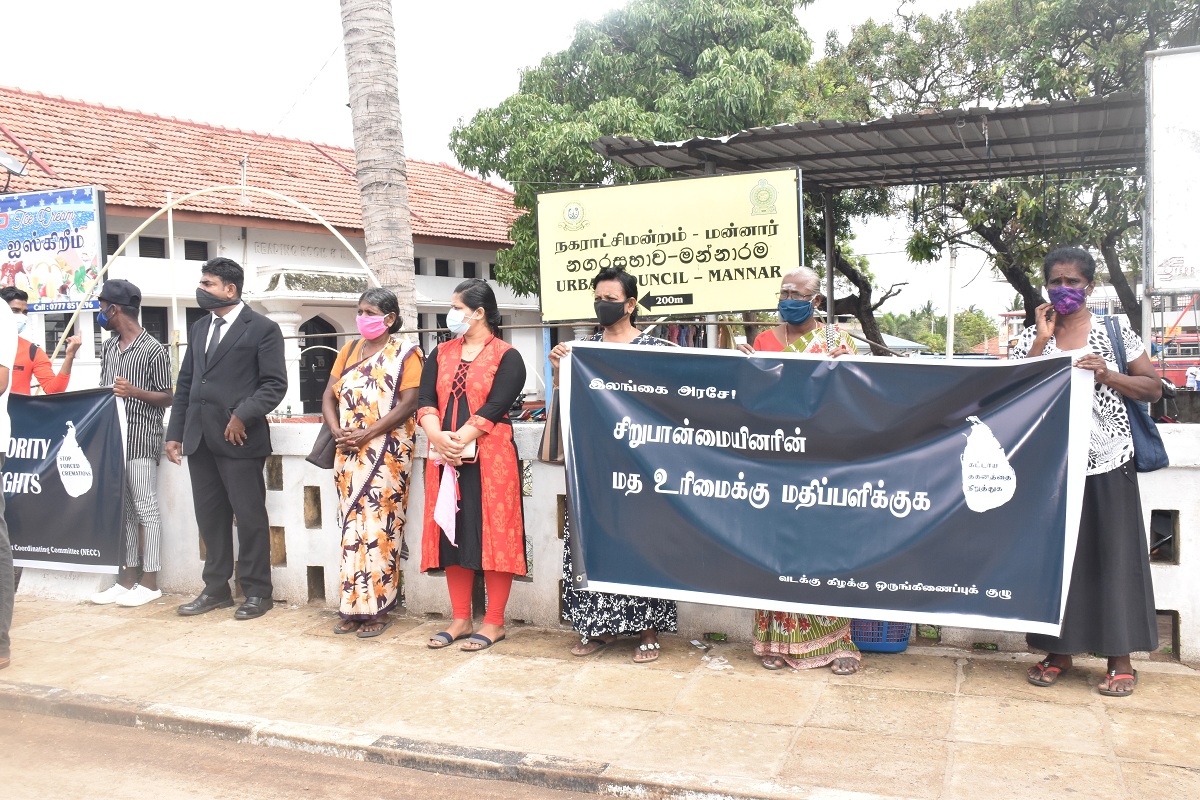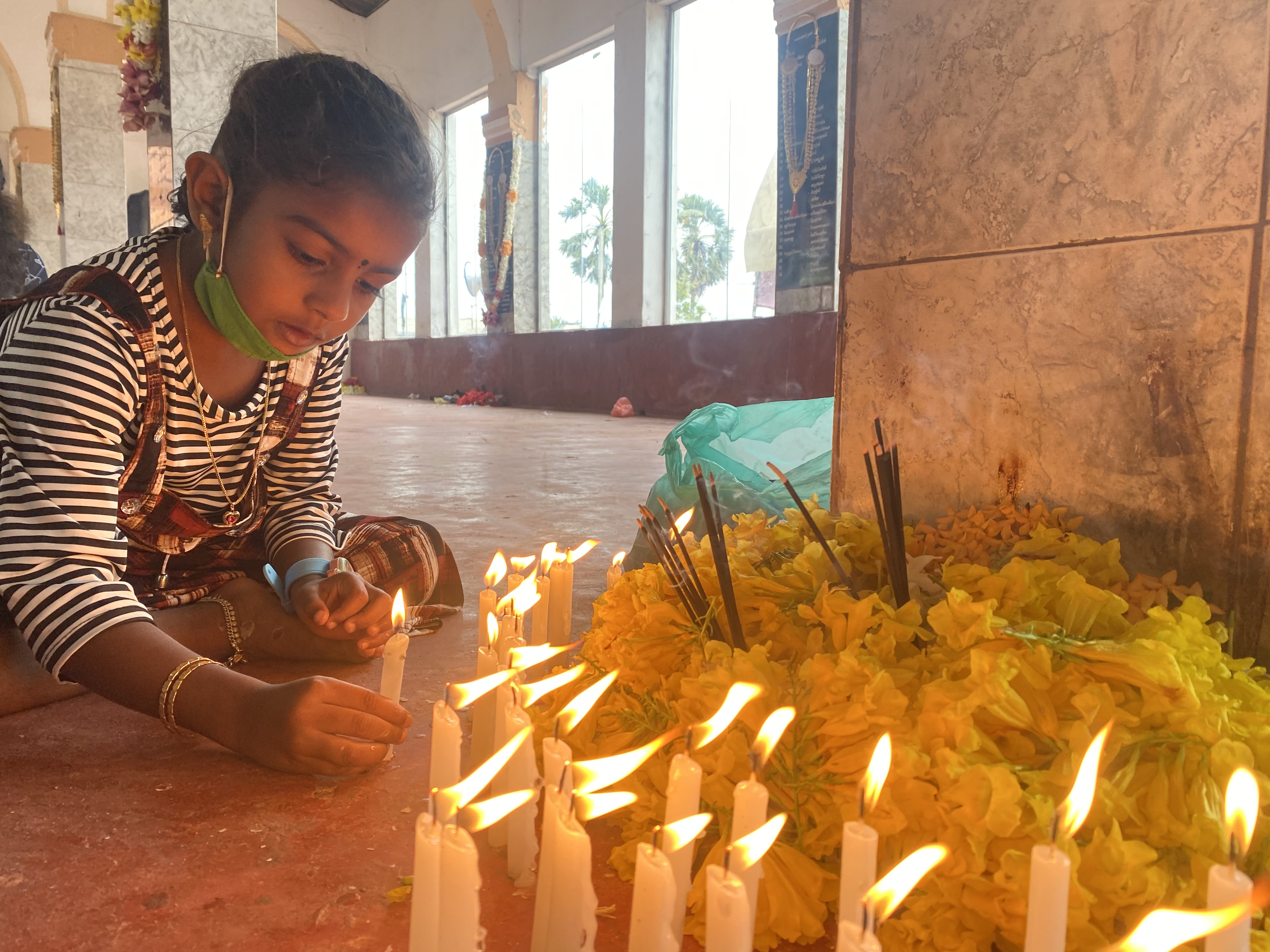The paradox of tolerance
Govt. makes cremation compulsory for COVID-19 deaths
Final rites of COVID-19 victims are done against the deceased’s beliefs
Political or religious groups should not lean towards hatred, discrimination, persecution and violence
31 December 2020 Systematic discrimination and human rights violations against minority communities in Sri Lanka are not new in the country’s political and social realm. The most recent of such violations have been brought to the forefront during the outbreak of the Coronavirus pandemic; exposing the State’s skewed practices in its wake. This will be an endeavour to examine how a purely ‘tolerant’ (in its classical sense) society is ultimately an unrealistic, and moreover destructive, standard to strive towards. By analyzing various viewpoints on what ‘tolerance’ truly means, within the context of Sri Lanka’s treatment of its religious minorities, the ideology itself comes to scrutiny.
A system of checks and balances is pertinent by both state and non-state actors for the survival of a society and the ultimate protection of the religious minorities in a country where they are routinely marginalized and discriminated against; specifically in the context of the rise of religious intolerance faced by the Muslims in
Sri Lanka, illustrated by the unjust prevention to carry out the final rites of burial of COVID-19 related deaths in accordance with the deceased’s beliefs, and the forcible cremation on the instruction of the authorities against the wishes of the deceased’s families.

Karl Popper’s Theory of Tolerance
Karl Popper’s theory on the paradox of tolerance explains that in order to survive, intolerant ideas, notions and practices cannot be accepted. Unlimited and universal tolerance in a society also reinforces dominant norms, ideas and actions, which are blatantly intolerant; these are usually depicted in a country where religious minorities are often marginalized. The line should be drawn between what is tolerable and what is submissive.
Karl Popper’s theory of tolerance depicted the seemingly paradoxical idea that, “In order to maintain a tolerant society, the society must be intolerant of intolerance.” This idea works by defeating such intolerance in the sphere of public debate. In the words of Popper,“If we extend unlimited tolerance even to those who are intolerant, we are not prepared to defend a tolerant society against the onslaught of the intolerant, then the tolerant will be destroyed and tolerance with them.”
Rise of Religious Intolerance
The Constitution of Sri Lanka guarantees freedom of thought, conscience, religion and the freedom to adopt a religion or belief of choice, not subjected to any restrictions (guaranteed in Article 10 of the Constitution). However, the rise of religious intolerance in Sri Lanka by state and non-state actors, continue in the face of these Constitutional rights.
This pattern of systematic discrimination seems to follow from the aftermath of the Easter Sunday bombings in April 2019. This included an onslaught of violent attacks on Muslim homes, places of worship and shops; as well as an economic boycott of Muslim-owned businesses and halal products, along with criticism of Muslim women adopting the burka or niqab. Following the attacks, many Muslims hindered themselves from public places for fear of their own safety, and consequently proceeded to lay low for months. This supports the aforesaid theory that unlimited and unchecked tolerance can lead to the extinction of tolerance. The intolerant groups in Sri Lanka have been seen to inevitably take advantage of the lack of restrictions placed upon them and thus begin to practice oppression and persecution openly. The remaining members of society thus have no means to protect themselves or to fend off such groups with unchecked freedom. Unsurprisingly, this would lead to the eradication of the remaining tolerant members of society, along with the concept of tolerance itself. Popper contends that, as paradoxical as it may seem, if a society is to defend tolerance, it must not tolerate the intolerant i.e. discrimination and oppression, and that societies are required to ensure human rights reforms, transitional justice, accountability, and reconciliation to truly strike a balance between the two ideals.
It can be seen that an excess of tolerance leads to decadence (in its classical sense), a multiplicity of acceptable standards at odds with one another. It is essential for a society to function to have core values, and hence toleration cannot be the unifying idea in a society.
Violations committed in the name of ‘Public Security’
This right to manifest a religion or belief guaranteed under Article 14(1)(e) of the Constitution is subject to Article 15 (7) of the Constitution which states that such rights granted can only be restricted by law, including ‘regulations made under the law for the time being relating to ‘public security.’ The question then remains as to what constitutes public security. Generally, public security may be achieved when public institutions can increase transparency by enhancing an open and democratic society, which promotes good governance by reviewing the public interest.
Public interest does not have a rigid meaning; it is an elastic concept and varies according to the time and state of the society. A wide definition, however, may include the general welfare of the public that warrants recognition and protection; something in which the public as a whole has a stake. In order to preserve both public and private interests in Sri Lanka, society’s religious freedom are required to be respected and not restricted. While restrictions to protect public security are necessary, public institutions are required to examine whether such restrictions are compatible with the relevant constitutional provisions and international human rights legislation such as the Universal Declaration of Human Rights. Having different views on issues such a religion, politics and society (and the right to voice them publicly) should be tolerated in society, as long as the actions of political or religious groups do not lean towards hatred, discrimination, persecution and violence.
On April 11, 2020 the Gazette Notification No. 2170/8 was published which made cremation the law for those who had died of COVID-19.This law was made on the direction issued by the Director General of Health Services (DGHS) on or about March 31, 2020 in the absence of conclusive scientific evidence, followed by the Supreme Court dismissing several Fundamental Rights petitions. Such a law is in direct conflict with Muslim belief where cremation is prohibited in the Islamic faith and is considered “a violation of the dignity of the human body”.
Muslims, like Christians, believe in resurrection of the physical body, and as such, cremation is prohibited for Muslims; whereas in Christianity there is no explicit objection to the practice of cremation. Up until March 30, 2020, the Ministry of Health listed burial as a safe option for COVID-19 victims and the World Health Organization (WHO) has also listed burial as a viable option for COVID-19 infected bodies worldwide, and provides safety measures to be followed in the process.
The guideline further provides that disposal of the dead bodies should be approached with cultural sensitivity. Several countries with higher death rates than Sri Lanka are continuing to bury their COVID-19 victims who have passed. The Government Medical Officers’ Association (GMOA) in Sri Lanka further stated that the WHO guidelines and the Quarantine Act allowed the option of both cremation and burial. Accordingly, the DGHS recommendation appears to lack any legitimacy. Cremation of those who have died or suspected to have died from COVID-19 is neither necessary nor proportionate to the achievement of protection of public healthcare or public interest, and therefore does not appear to be a permissible restriction of the freedom to manifest religion or beliefs and shall be in contravention to Article 14(1)(e) of the Constitution.
It may be argued that the right to bury, cremate or donate the body of a loved ones shall not be the State’s choice, but rather remain a fundamental human right. This concept may be transplanted from the provisions laid out in the 1949 Geneva Convention, which states that the dead must be ‘respected’ and ‘protected’ during international or non-international armed conflict. It may therefore be prudent to apply the protection afforded by International Humanitarian Law to the COVID-19 related deaths, as thispandemic, without doubt, falls into the category of a
humanitarian crisis.
Some Muslims have resolved not to give their consent to cremate their loved ones who have died of COVID-19 in
Sri Lanka due to their conviction that they do not want to be party to such a sinful act (according to their faith) and some could not afford to pay Rs. 58,000 for the coffin and cremation costs, as the mosques usually bear the costs of burial. This has led to many unclaimed bodies of COVID-19 victims, and as such we see families being forced to abandon their own dead to protect their beliefs and traditions. The Colombo Municipal Council has begun cremating bodies of unclaimed victims after obtaining legal clearance from the Attorney General. Not allowing burials is having a negative effect on social cohesion and, more importantly, could also adversely impact the measures for containing the spread of the virus as it may discourage people to access medical care when they have COVID-19 symptoms. Thus, the negative consequences of not allowing burials seem to outweigh any potential epidemiological benefit.
Right of Self-Preservation and Rule of Law
John Rawls concluded in his ‘A Theory of Justice’ that a just society must tolerate the intolerant for otherwise, the society would then itself be intolerant and thus unjust. However, Rawls qualifies this with assertion that under extraordinary circumstances in which constitutional safeguards do not suffice to ensure the security of the tolerant and the institutions of liberty, tolerant societies have a reasonable right of self-preservation against acts of intolerance and oppression that would limit the liberty of others under a just constitution, and this supersedes the principal of tolerance. The above mentioned acts by Muslims boycotting such cremation brings Rawls’ theory of self-preservation in the light of injustices to life, as they protect themselves from harm or destruction when defending against acts of intolerance.
Muslims in Sri Lanka argue that the abovementioned Gazette ensures that there is no dignity in the death of their loved ones, as this new law prohibits them from conducting the four essential obligations assigned by their faith which include bathing, dressing, praying and burying the dead bodies. In the words of Rawls, “The most stable conception of justice… is one that is perspicuous to our reason, congruent with our good, and rooted not in abnegation but in affirmation of self”. However, the Muslim community in Sri Lanka has been stripped of self-respect and their dignity, and as such this religious minority does not hold equal basic rights as the rest of society, and Rawls’ theory on ‘Justice as fairness’ has been dismissed in such a society.
Way Forward; if not tolerance, then what?
In order to put the abovementioned theories into practice, law enforcement agents and state actors must act immediately against perpetrators who are inciting violence against religious minorities and circulars issued, that lack validity and are oppressive towards these minorities, should be withdrawn. This shall be done by publicly voicing opposition to religious intolerance in Sri Lanka and the promotion and protection of minority religious communities shall be safeguarded in ongoing Constitutional reform processes and the equal application of relevant legal frameworks must be ensured, to safeguard the rights of religious minorities in Sri Lanka.
Conclusion
Tolerance no longer has a blessed status in societies, but is revealed as operating as a tool of governance, power and subject production. Unlimited tolerance or submission in Sri Lanka by the minorities has allowed public institutions to victimize a portion of its people, thus straining their fundamental values, which are important for the long-term endurance of such tolerant societies. It is important for such societies to further lower their threshold of tolerance for what is unfair, unreasonable and arbitrary, as ‘unlimited tolerance must lead to the disappearance of tolerance.’ In the context of ongoing violations against religious minorities in
Sri Lanka, a balance must be struck and indeed tolerance is not a virtue to aspire to, even when practiced in degrees and not absolutes.
![]()





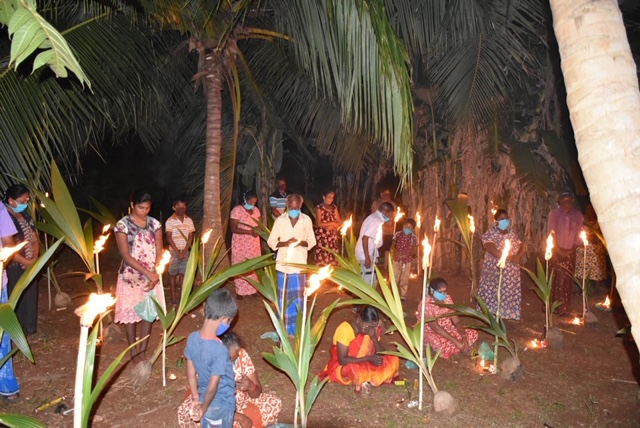

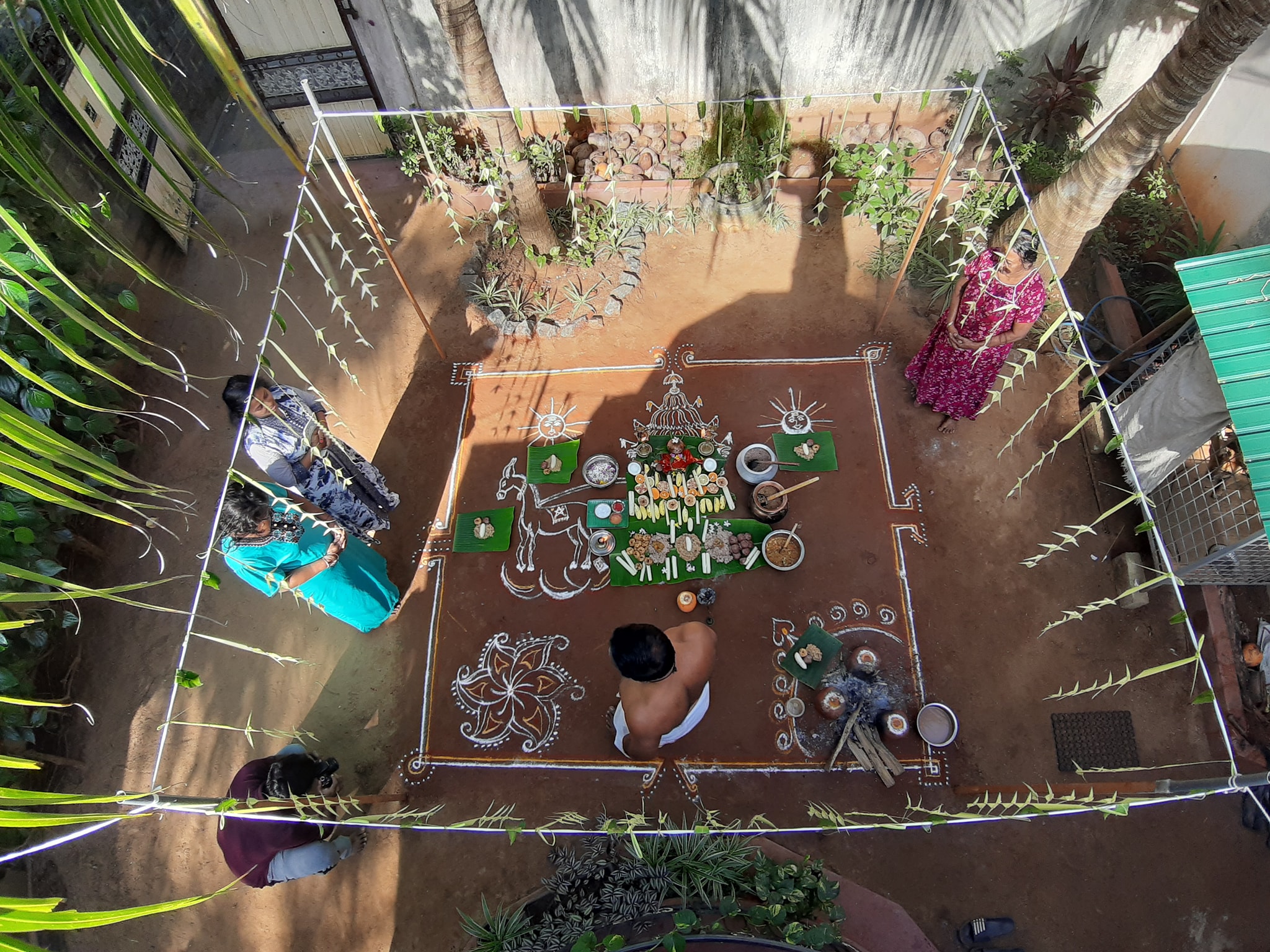
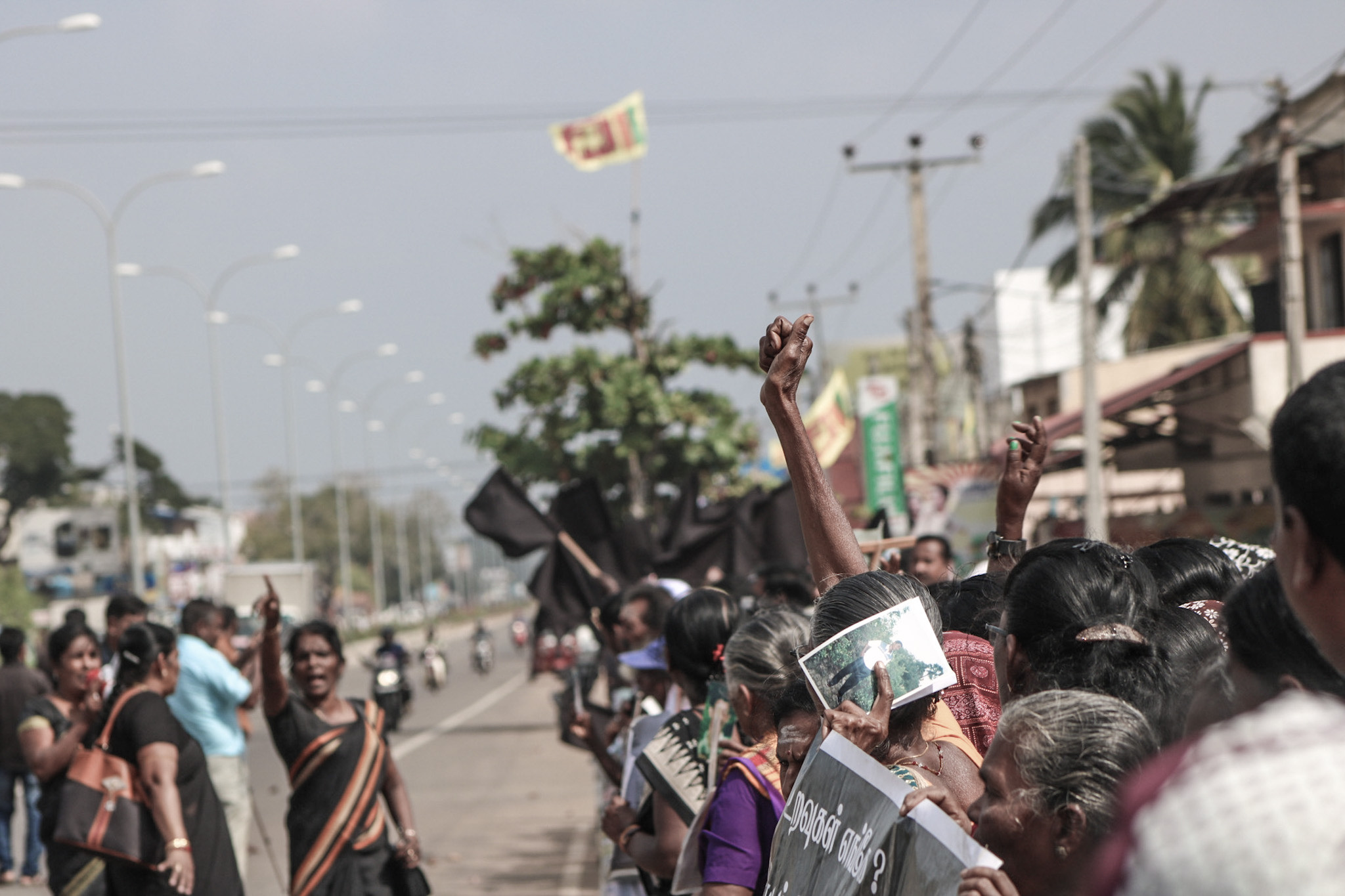
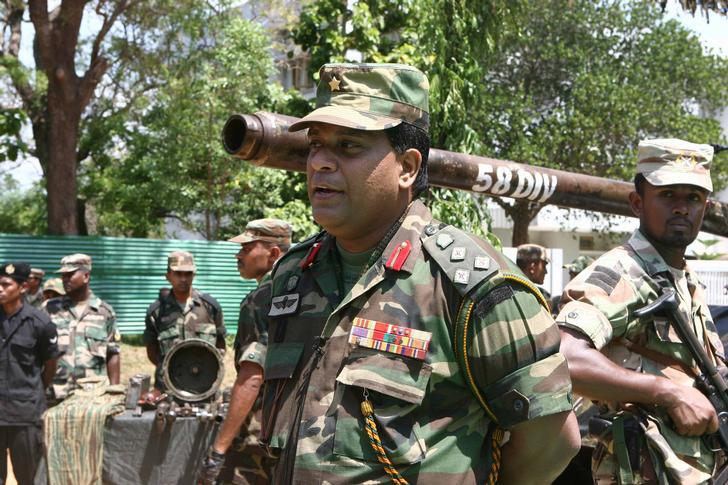
.jpg)
